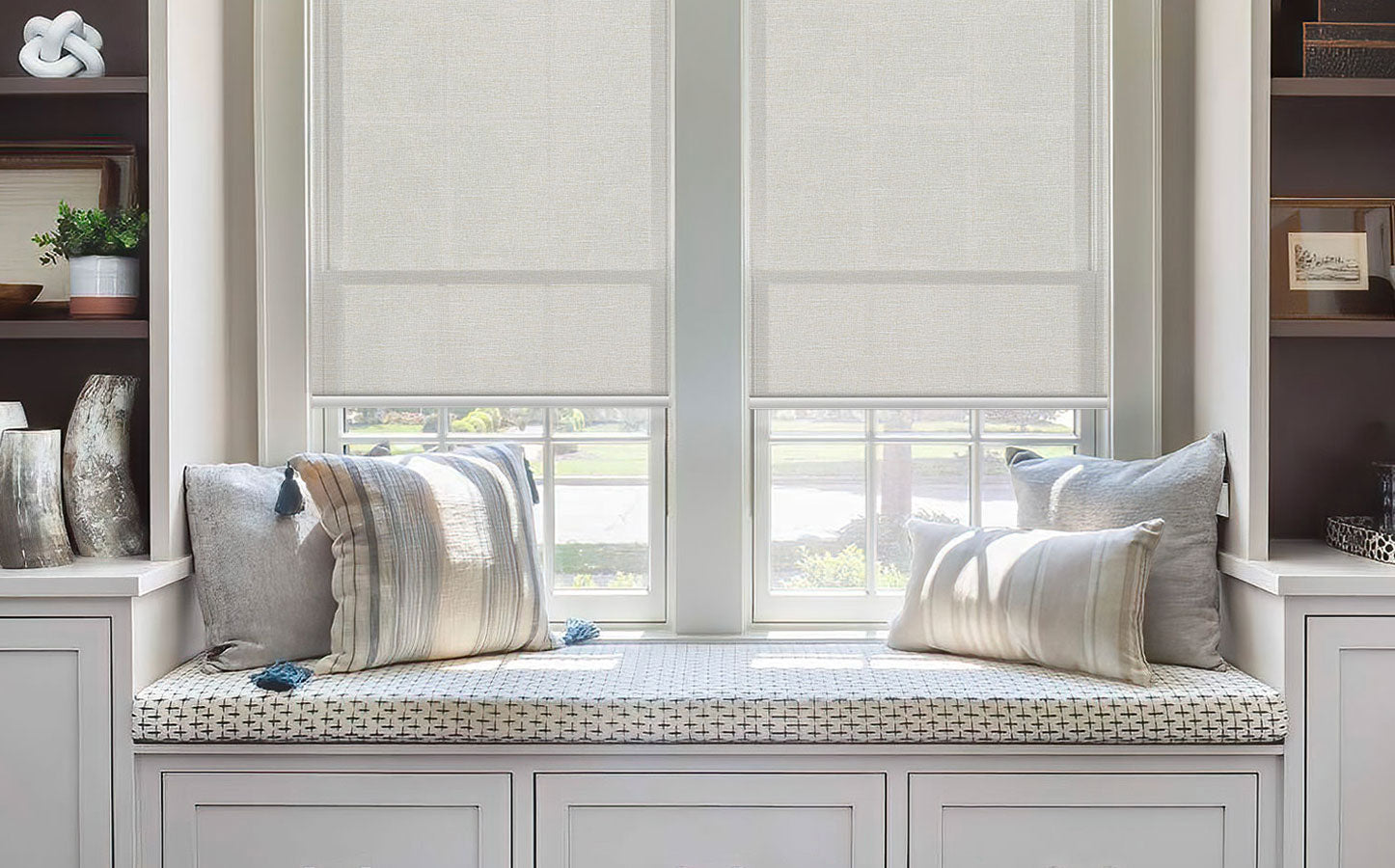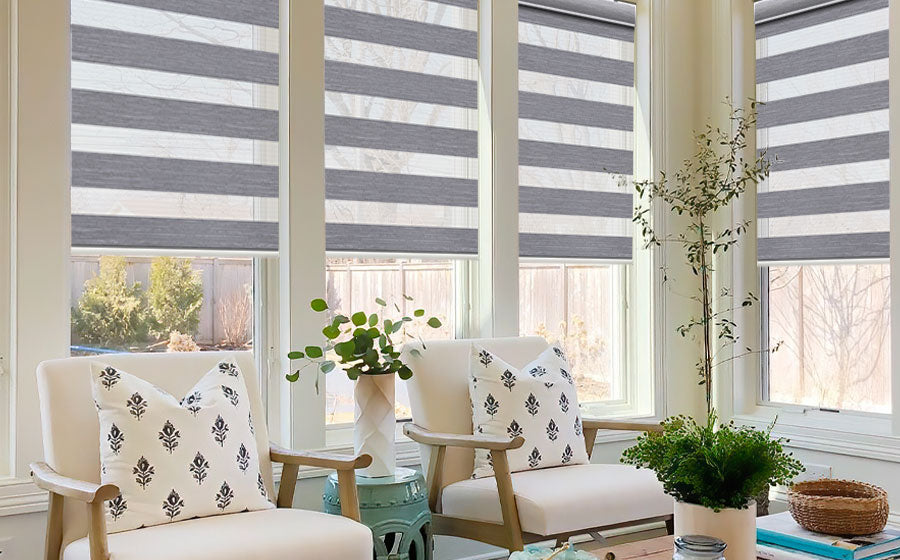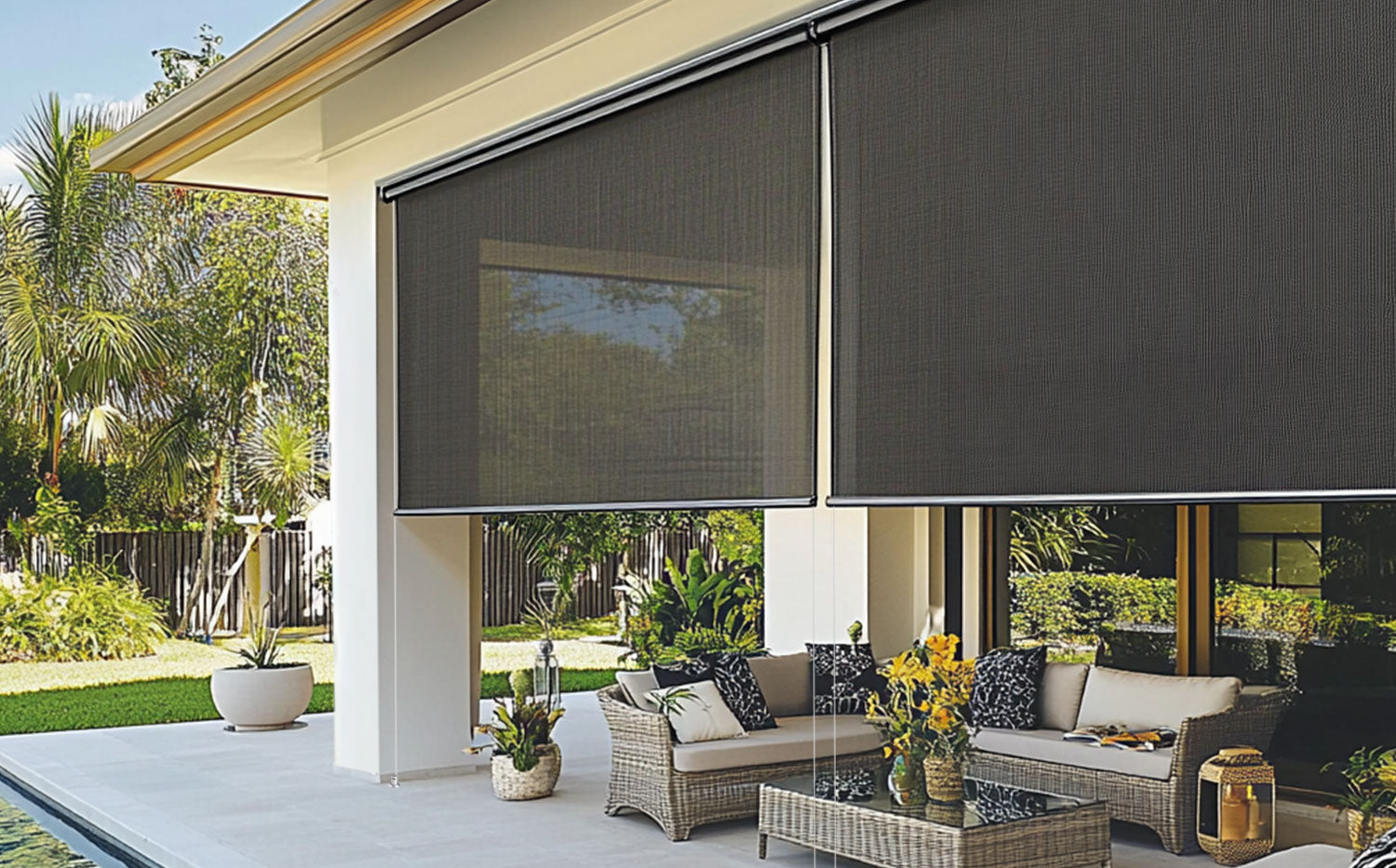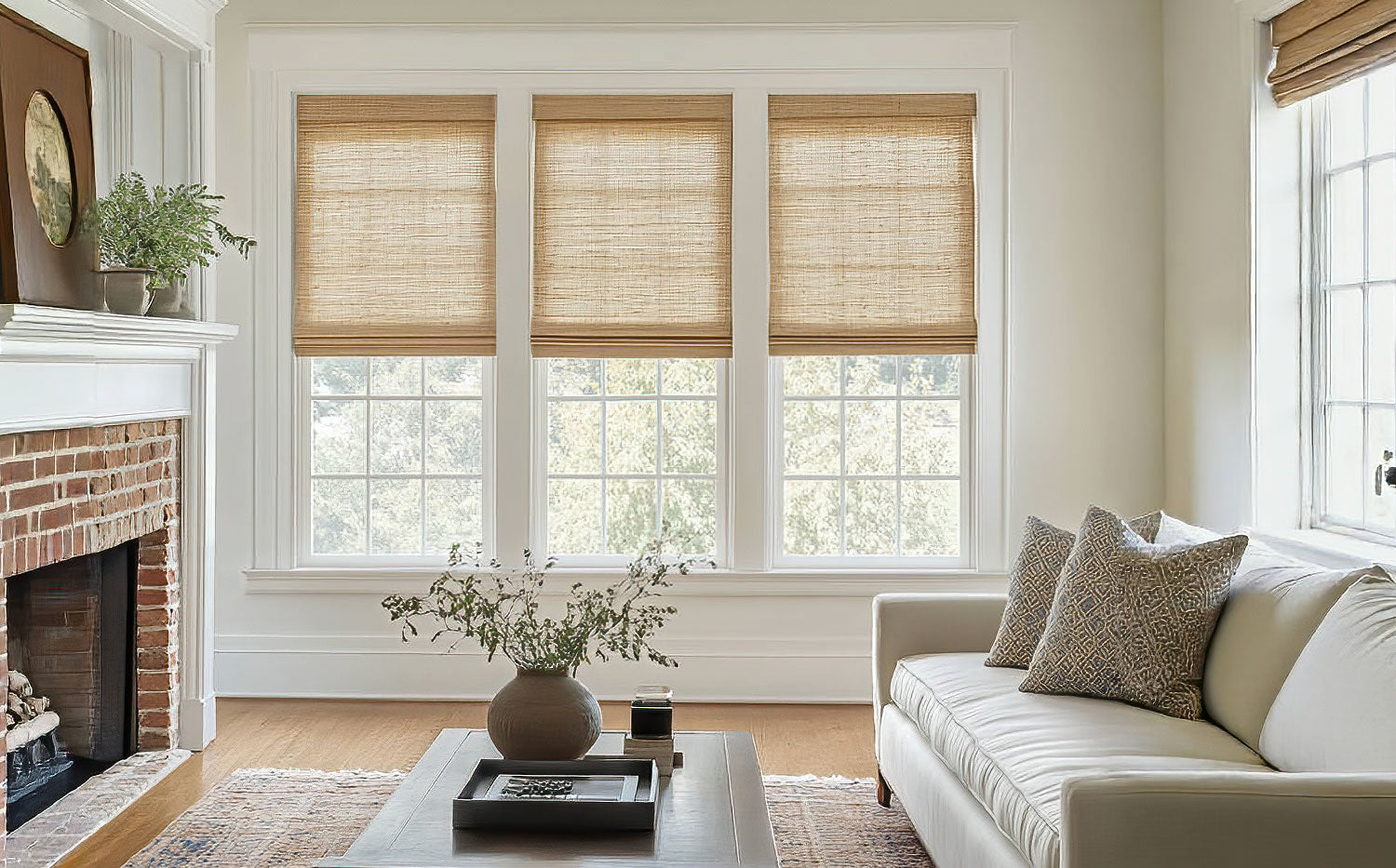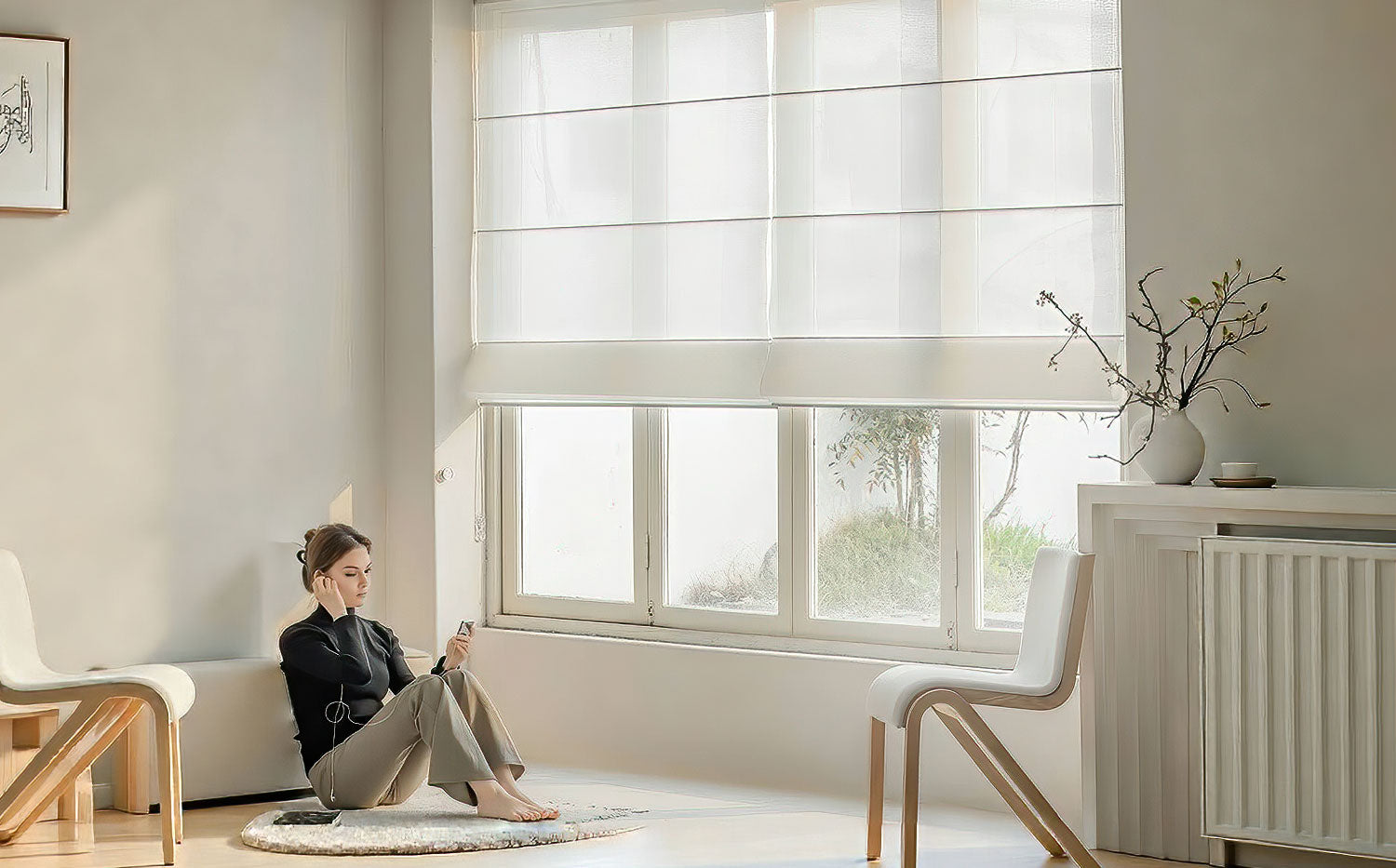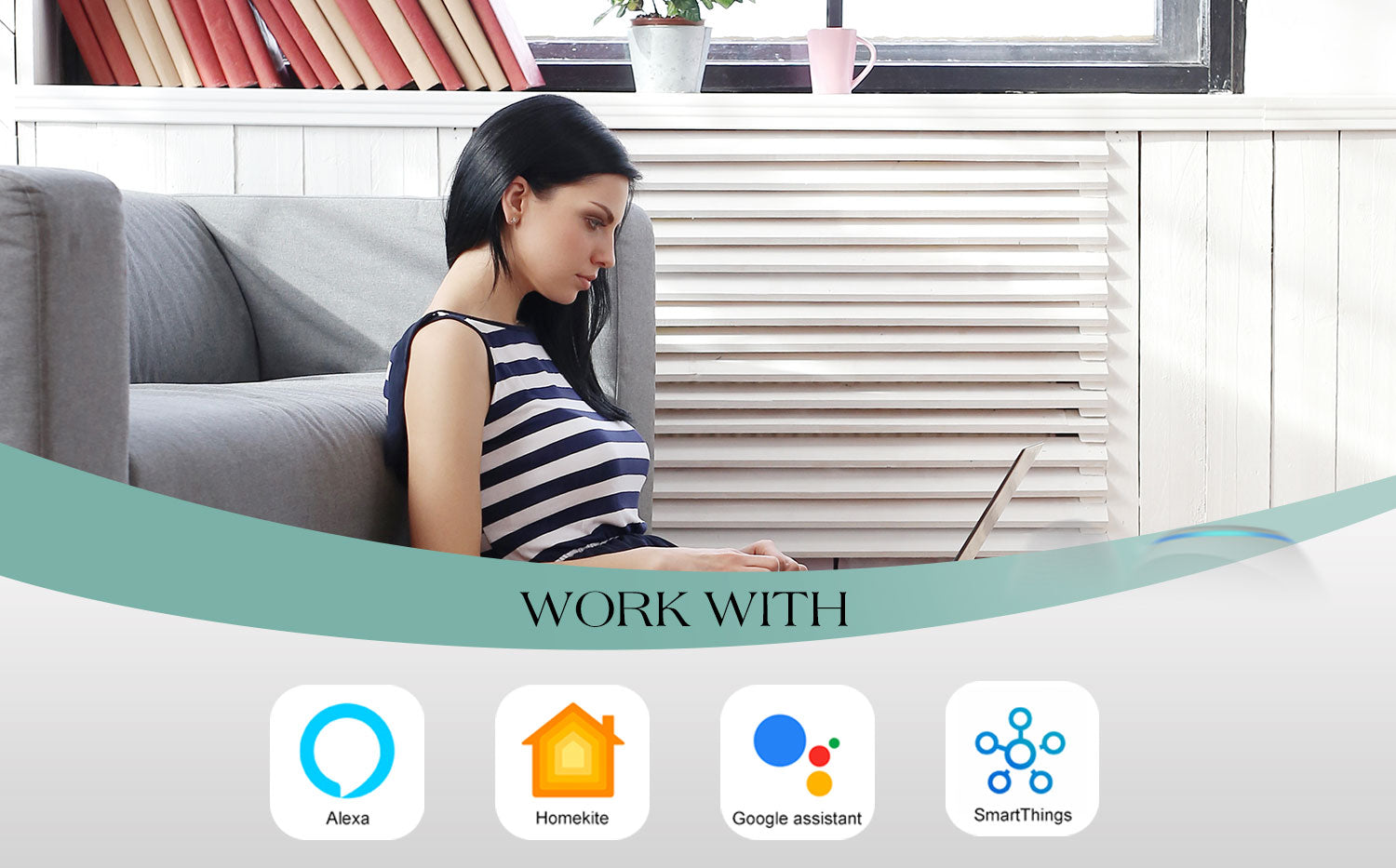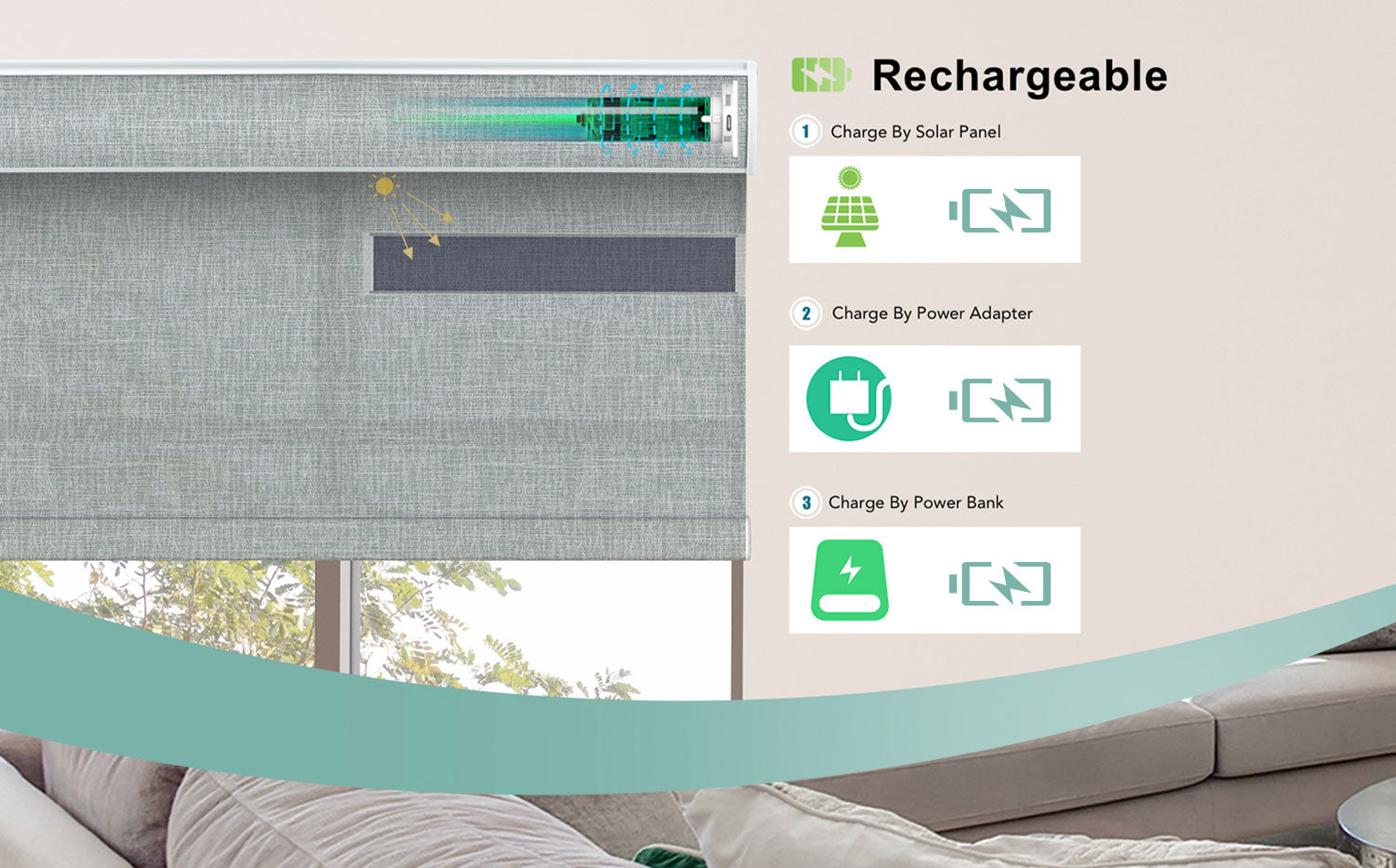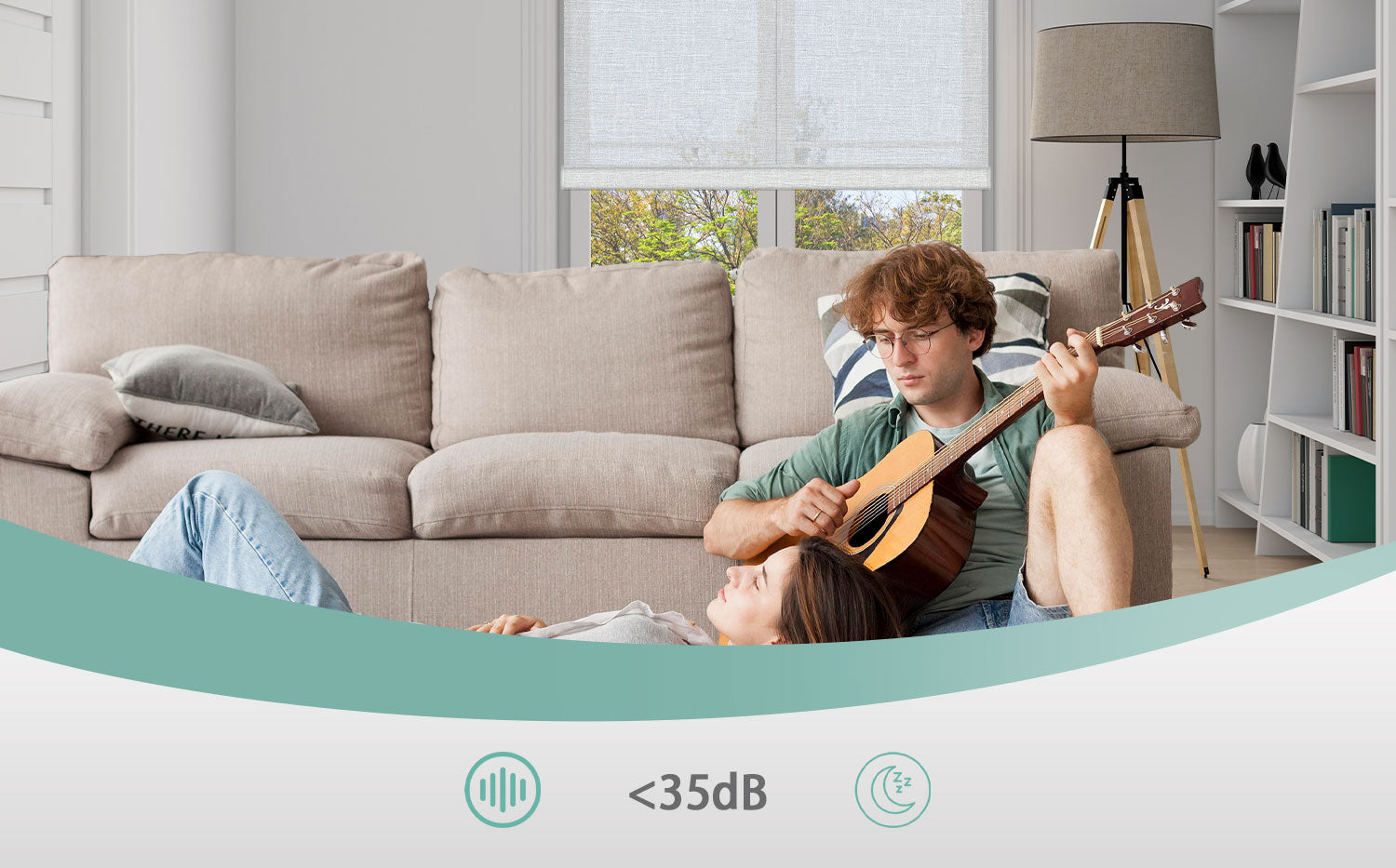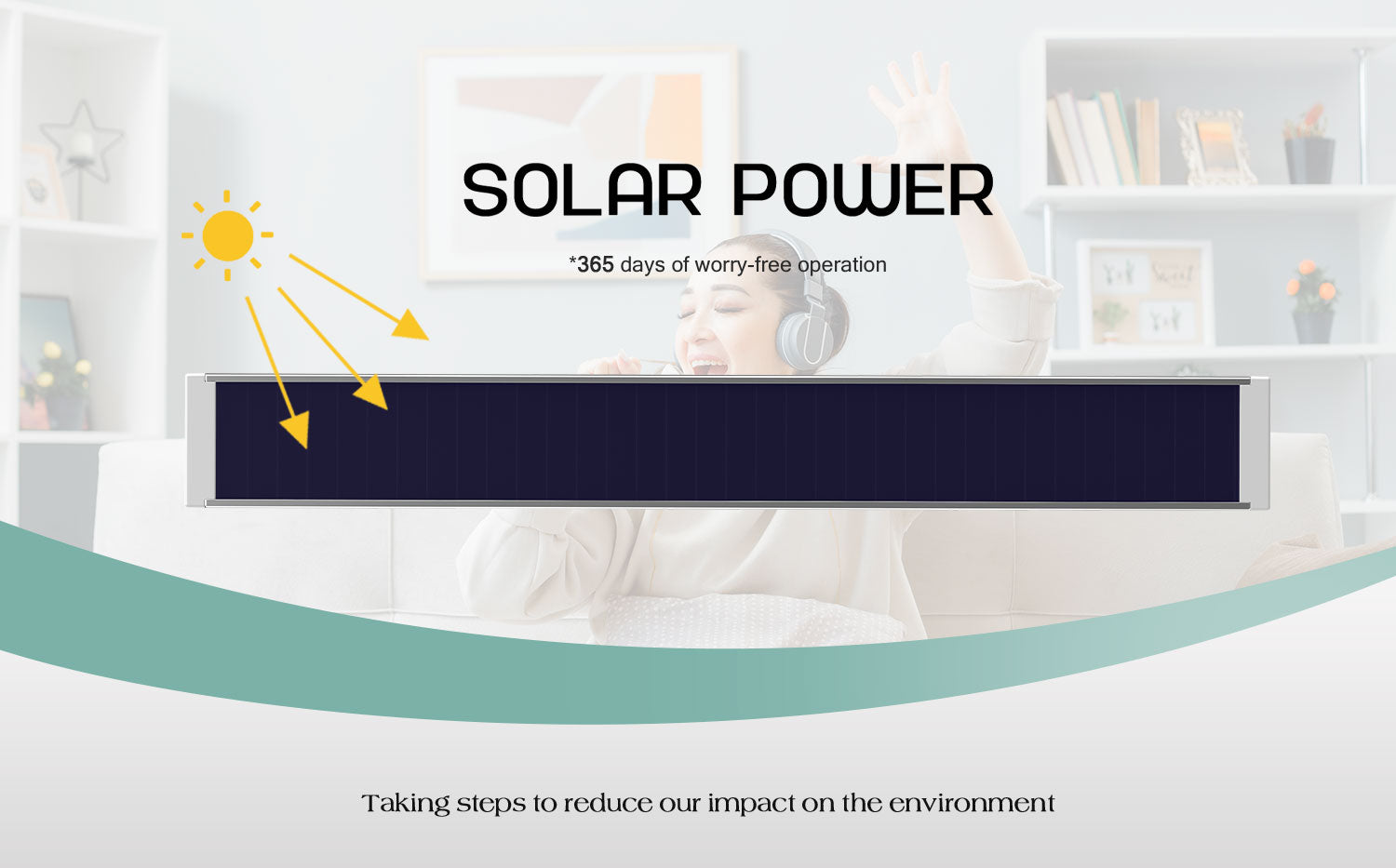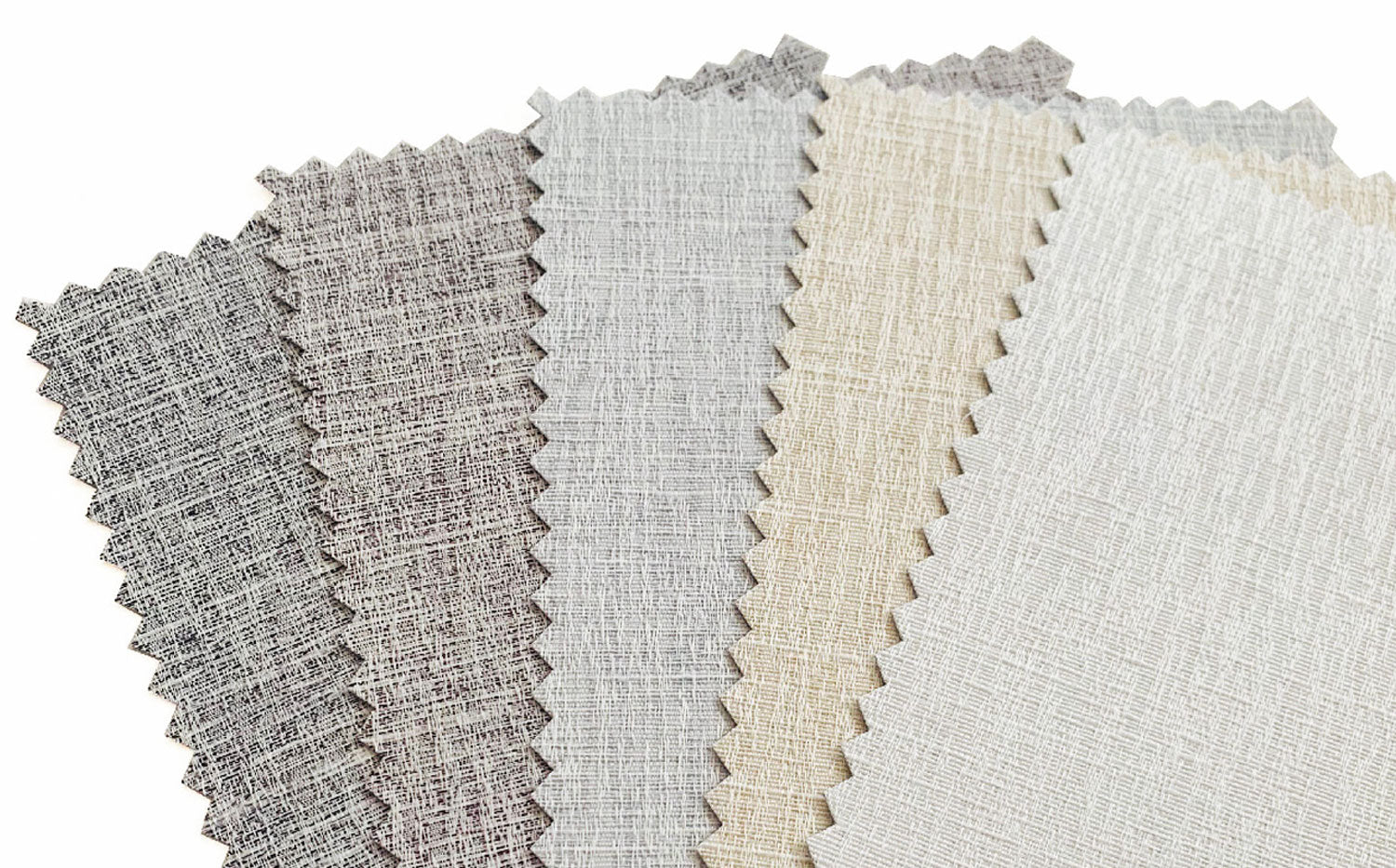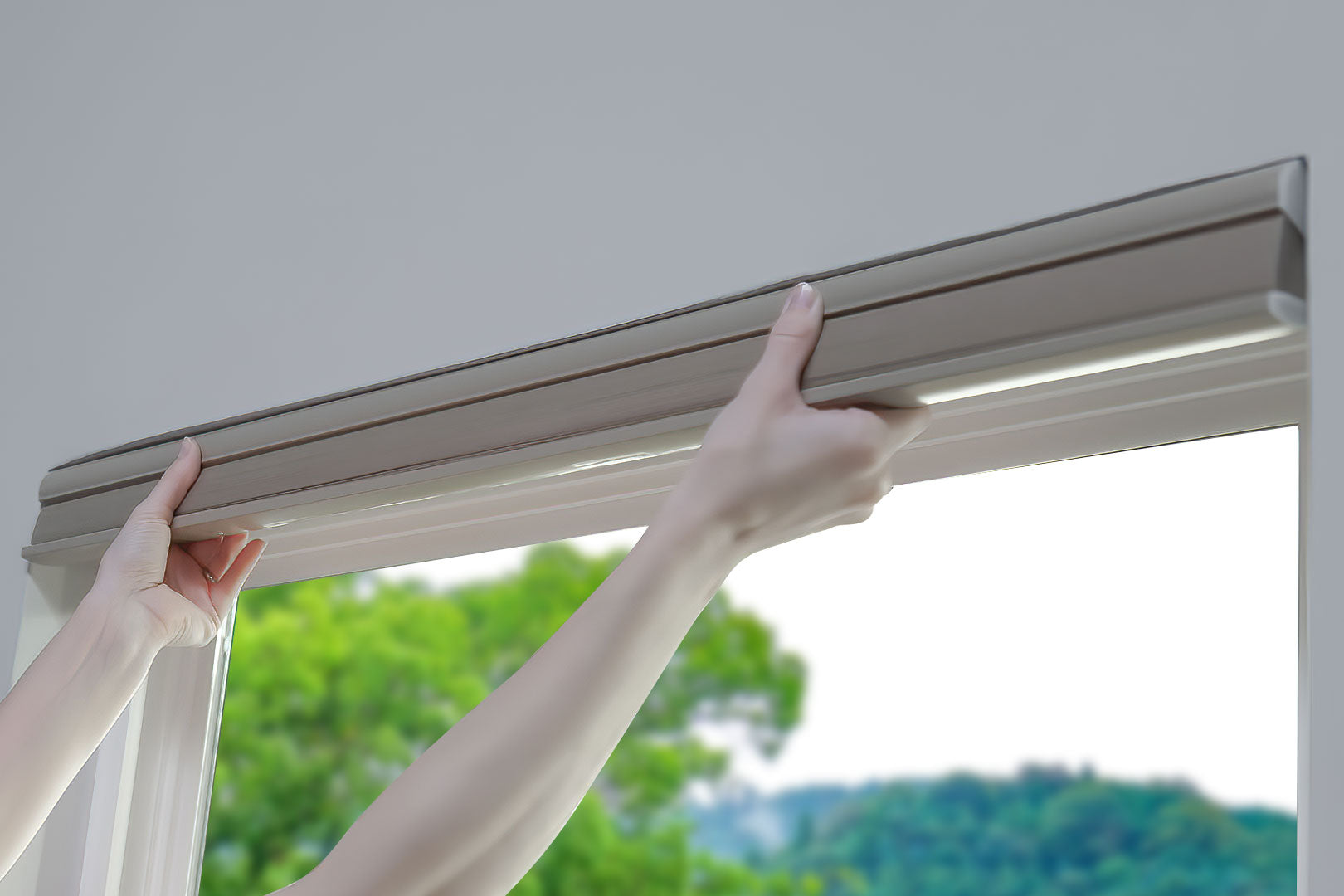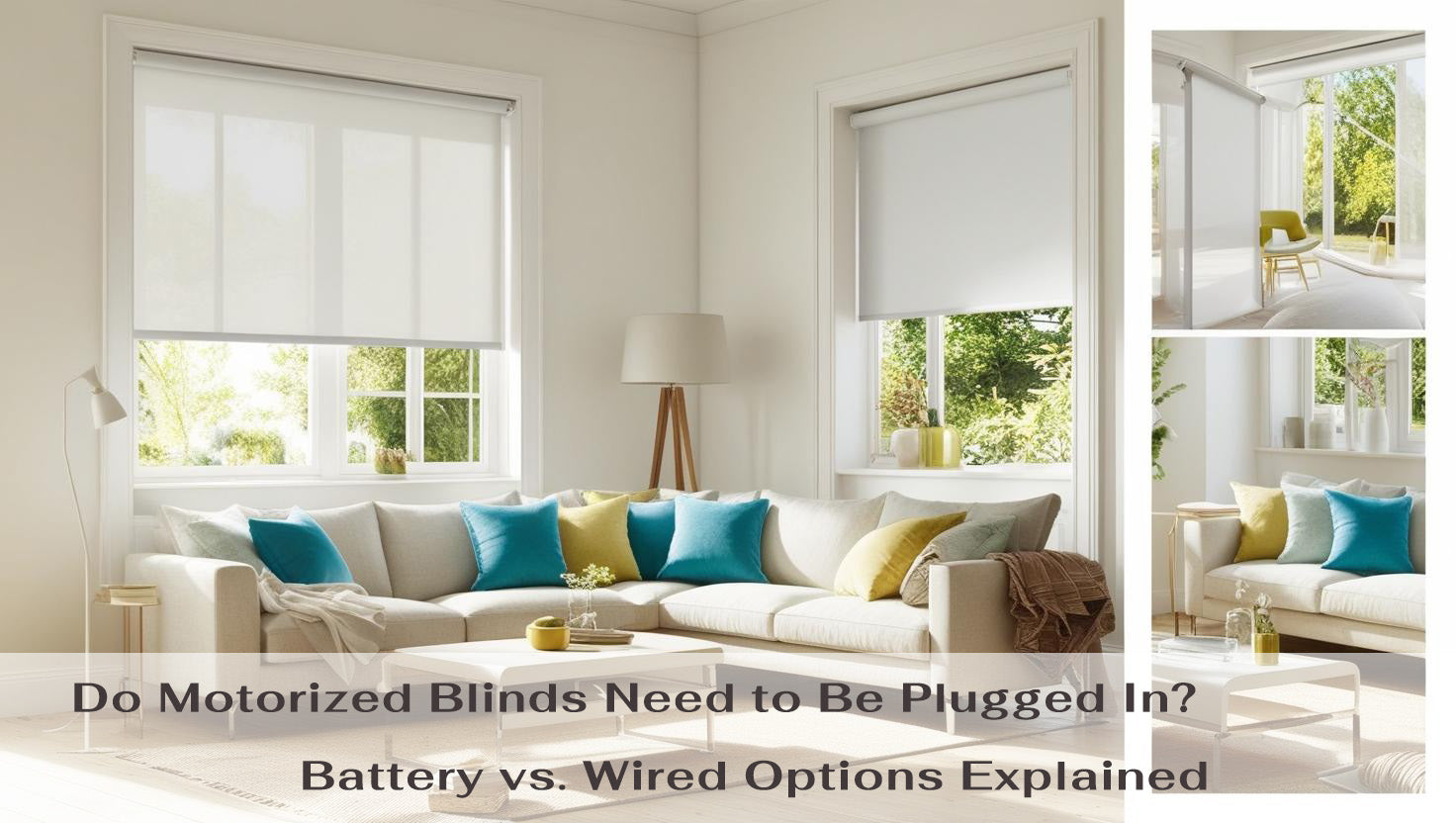
Tired of yanking cords? Motorized blinds offer a sleek, modern upgrade, but a big question mark hangs over them: Do they need to be plugged in? Many assume they do, but that's not always the case.
We'll clear up the confusion and explore all your power options. Here’s what we'll cover:
● Battery-powered motorized blinds: How they work and their benefits.
● Wired motorized blinds: Installation and power considerations.
● Pros and cons of each option.
● Factors to consider when choosing between battery and wired.
Blinds Magic offers a range of eco-friendly motorized blinds, including battery-powered options. We believe in giving you choices that fit your lifestyle and your home.
Battery-Powered Motorized Blinds
Battery-powered motorized blinds offer a compelling blend of convenience and simplicity. They present a wire-free solution for automating your window treatments, making them a dream for DIY enthusiasts and those seeking a swift and easy home upgrade.
Forget about the hassle of electricians and intricate wiring. With battery-powered blinds, you simply install them, insert the batteries, and voilà – instant automation.
How Do They work?
These ingenious blinds operate using a compact motor powered by batteries. Lithium-ion batteries are a popular choice, known for their longevity and rechargeability. Alkaline batteries are also common, offering a readily accessible power source.
The batteries themselves are typically discreetly housed within the headrail of the blind, maintaining a clean and uncluttered aesthetic. Some models offer the convenience of rechargeable battery packs, a financially savvy and environmentally friendly option. Others utilize standard disposable batteries, readily available at most stores.
The Advantages
One of the most significant advantages of battery-powered blinds is their effortless installation. The absence of wires means you can typically install them yourself in just minutes. This makes them a perfect fit for renters who can't make permanent alterations or anyone who prefers to avoid electrical work. Plus, their portability is a bonus.
If you decide to redecorate or move, you can easily take your motorized blinds with you. They're also an excellent choice for those hard-to-reach windows where running wires would be a major undertaking.
● DIY-Friendly: Easy installation without the need for professional help.
● Portable: Move them with ease if you redecorate or relocate.
● Ideal for Hard-to-Reach Windows: Simplify automation in challenging locations.
Beyond convenience, battery-powered blinds enhance safety. The absence of dangling cords makes them a safer option for households with curious little ones and playful pets. No more worrying about tangled cords. This added peace of mind is invaluable.
The Drawbacks
While battery-powered blinds offer numerous benefits, they also have some limitations. You'll need to replace or recharge the batteries periodically. The frequency of battery changes depends on usage, but it's a factor to consider.
While the initial cost of battery-powered blinds might be lower than wired options, the ongoing cost of batteries can accumulate over time. For instance, a customer with numerous windows might find the recurring battery expenses substantial.
● Battery Replacement/Recharging: Periodic maintenance required.
● Ongoing Battery Costs: Can add up over time, especially for multiple windows.
Blinds Magic offers a variety of battery-powered options, including our widely recognized line of eco-friendly cellular shades. These shades are crafted from sustainable materials and are designed for simple installation. We also offer rechargeable battery packs for many of our models, providing a cost-effective and environmentally conscious choice.
Wired Motorized Blinds
Wired motorized blinds offer a dependable and long-lasting solution for automating your window treatments. They are a popular choice for homeowners who prioritize reliability and seamless integration with their smart home systems.
How They Work
Wired motorized blinds operate using a low-voltage electrical connection, typically 120V. The motor is connected to a controller, which can be wired into your home's electrical system or integrated with your smart home hub. This allows you to control your blinds using a wall switch, remote control, or smartphone app.
The Advantages
● Reliability: Wired blinds offer consistent power and eliminate the need to worry about battery replacement or recharging.
● Long-lasting: Wired blinds have a longer lifespan than battery-powered blinds, making them a more cost-effective choice in the long run.
● Smart Home Integration: Wired blinds can be easily integrated with your smart home system, allowing you to control them with voice commands, smartphone apps, or home automation systems. This provides a seamless and convenient way to manage your home's environment.
● Energy Efficiency: Some wired blinds come with advanced features like sun sensors and timers, which can help you save energy and reduce your carbon footprint.
The Disadvantages
● Installation: Wired blinds require professional installation, which can be more expensive than installing battery-powered blinds.
● Wiring: Running wires can be messy and disruptive, especially in existing homes.
Pros and Cons of Each Option

Choosing between battery-powered and wired motorized blinds can feel like a big decision. To make it easier, we've broken down the pros and cons of each:
Battery-Powered Blinds
Pros:
● Easy Installation: DIY-friendly. No electrical work required. Perfect for renters.
● Portability: Move them easily if you redecorate or relocate.
● Safety: No dangling cords, making them safer for kids and pets.
● Lower Initial Cost: Generally less expensive upfront.
Cons:
● Battery Replacement: Requires periodic battery changes or recharging.
● Ongoing Battery Costs: Expenses can add up over time, especially with multiple windows.
● Limited Smart Home Integration: May not integrate as seamlessly with some smart home systems.
● Potentially Less Reliable: Battery life can be affected by usage and temperature.
Wired Motorized Blinds
Pros:
● Reliability: Consistent power supply, no need for battery replacements.
● Long-Lasting: Typically have a longer lifespan than battery-powered options.
● Seamless Smart Home Integration: Easily connect to your smart home ecosystem.
● Potentially More Energy Efficient: Some models offer features like sun sensors and timers.
Cons:
● Professional Installation Required: Adds to the upfront cost.
● More Expensive Upfront: Higher initial investment.
● Wiring Can Be Disruptive: May require opening walls or ceilings.
● Less Portable: Not as easy to move if you redecorate.
Which is Right for You?
The best choice depends on your priorities. If you value easy installation and portability, battery-powered blinds are a good option. If you prioritize reliability, long-term cost savings, and seamless smart home integration, wired blinds might be a better fit. Consider your budget, your DIY skills, and your long-term plans for your home.
Imagine you're furnishing a new apartment. Battery-powered blinds might be ideal due to their easy installation and portability. However, if you're renovating your forever home and plan to integrate your blinds with a sophisticated smart home system, wired blinds are likely the better long-term investment.
Battery vs. Wired Motorized Blinds: A Quick Comparison
|
Feature |
Battery-Powered Blinds |
Wired Motorized Blinds |
|
Installation |
Easy, DIY-friendly |
Requires professional installation |
|
Initial Cost |
Lower |
Higher |
|
Long-Term Cost |
Can be higher due to battery replacements |
Potentially lower due to no battery replacements |
|
Reliability |
Potentially less reliable, affected by battery life |
More reliable, consistent power supply |
|
Smart Home Integration |
May be limited, check compatibility |
Seamless integration with most smart home systems |
|
Portability |
Easy to move |
Difficult to move |
|
Safety |
Safer for kids and pets (no cords) |
Can be made safe with proper cord management |
|
Maintenance |
Requires periodic battery changes |
Minimal maintenance |
|
Environmental Impact |
Battery disposal can be a concern |
Generally, more energy-efficient with smart features |
|
Best For |
Renters, DIYers, temporary solutions |
Homeowners, long-term use, smart home integration |
● Battery-powered: A young professional renting an apartment wants to upgrade their window treatments without making permanent changes. Battery-powered blinds are the perfect solution.
● Wired: A family is building their dream home and wants to integrate their blinds with their smart home system for automated control and energy efficiency. Wired blinds are the ideal choice.
Blinds Magic offers a wide range of battery-powered motorized blinds. We're happy to discuss your specific needs and help you choose the best option for your home.
Factors to Consider When Choosing Between Battery and Wired

Choosing the right motorized blinds involves weighing several factors. It's not a one-size-fits-all decision. Here's a breakdown of key considerations to help you make the best choice for your home:
● Budget: Consider both the upfront costs (purchase and installation) and the long-term costs (battery replacements vs. potential energy savings). A lower initial price tag might not always be the cheapest option in the long run.
● DIY Skills: Are you comfortable with basic home improvement tasks? Battery-powered blinds are generally DIY-friendly. Wired blinds typically require professional installation. Don't overestimate your abilities – electrical work is best left to the pros if you're not experienced.
● Smart Home Integration: Do you have a smart home system? If so, how important is it to integrate your blinds? Wired blinds usually offer seamless integration with a wider range of smart home platforms. Check compatibility before you buy.
● Window Location: Are your windows easily accessible? Hard-to-reach windows might be easier to automate with battery-powered blinds, avoiding the hassle of running wires.
● Aesthetics: Consider the look you're going for. While both battery and wired options offer clean aesthetics, the absence of visible wires with battery-powered blinds can be a plus for some.
● Energy Efficiency: Some wired blinds come with features like sun sensors and timers, which can help you save energy. If energy efficiency is a top priority, explore wired options with these features.
● Long-Term Plans: Are you planning to stay in your home for a long time? If so, investing in wired blinds might be a worthwhile long-term investment. If you're a renter, battery-powered blinds offer more flexibility.
● Child and Pet Safety: Cordless blinds are a must for homes with small children and pets. Both battery-powered and wired blinds can be cordless, but ensure that any wired installation is done with safety in mind.
● Number of Windows: If you're automating a large number of windows, the long-term cost of battery replacements for battery-powered blinds can be significant. Wired blinds might be more cost-effective in this scenario.
Let's say you're renovating a sunroom with large, south-facing windows. Energy efficiency is important to you. Wired blinds with sun sensors would likely be the best choice. On the other hand, if you're simply updating a guest bedroom and want a quick and easy solution, battery-powered blinds could be the way to go.
So, Do Motorized Blinds Really Need to Be Plugged In?
The short answer is: not always. As we've explored, motorized blinds come in both battery-powered and wired versions. The "plugged-in" question is really about whether they require a direct electrical connection or if they can operate independently on battery power.
Many people assume that all motorized blinds need to be hardwired, but that's a common misconception. Battery-powered blinds offer a convenient, wire-free alternative, making them a great option for many homeowners. They're especially appealing for DIYers, renters, and those looking for a quick and easy upgrade.
However, wired blinds offer their own set of advantages. They're generally more reliable, integrate seamlessly with smart home systems, and eliminate the need for battery replacements. They're often the preferred choice for larger installations and homeowners who prioritize long-term cost savings and advanced features.
Key takeaway? The best type of motorized blinds for you depends on your individual needs and priorities. There's no single "right" answer. Consider your budget, your DIY skills, your long-term plans for your home, and your desired level of smart home integration.
Still unsure? Choosing the right motorized blinds can feel overwhelming. Don't worry, you're not alone. Blinds Magic is here to help. We offer free consultations to discuss your specific needs and recommend the perfect solution for your home. Contact us today, and let's get started on transforming your windows. We believe in making the process as easy and enjoyable as possible.
FAQs
Do you need to plug in motorized blinds?
No, not always. Motorized blinds come in both battery-powered and wired versions. Battery-powered blinds operate on batteries, so they don't require a direct electrical connection. Wired blinds, on the other hand, do need to be connected to your home's electrical system.
Do motorized blinds need power?
Yes, all motorized blinds need a power source to operate. Battery-powered blinds use batteries, while wired blinds use your home's electrical power. Without a power source, the motor won't work.
How are motorized blinds powered?
Motorized blinds are powered in two main ways:
● Batteries: Battery-powered blinds use batteries (typically lithium-ion or alkaline) to power the motor. These batteries are usually housed within the headrail of the blind.
● Electrical Wiring: Wired blinds are connected to your home's electrical system, providing a continuous power supply to the motor.
How often do motorized blinds need to be charged?
This question applies specifically to battery-powered blinds with rechargeable batteries. How often you need to recharge depends on several factors, including:
● Usage: How often you raise and lower the blinds.
● Blind Size and Weight: Larger, heavier blinds require more power.
● Battery Capacity: The capacity of the battery pack.
Generally, you can expect to recharge your motorized blinds every few months. Some models may last longer, while others may require more frequent charging. Check the manufacturer's instructions for specific recommendations. If your blinds use disposable batteries, you'll need to replace them rather than recharge them. Again, frequency depends on usage.

